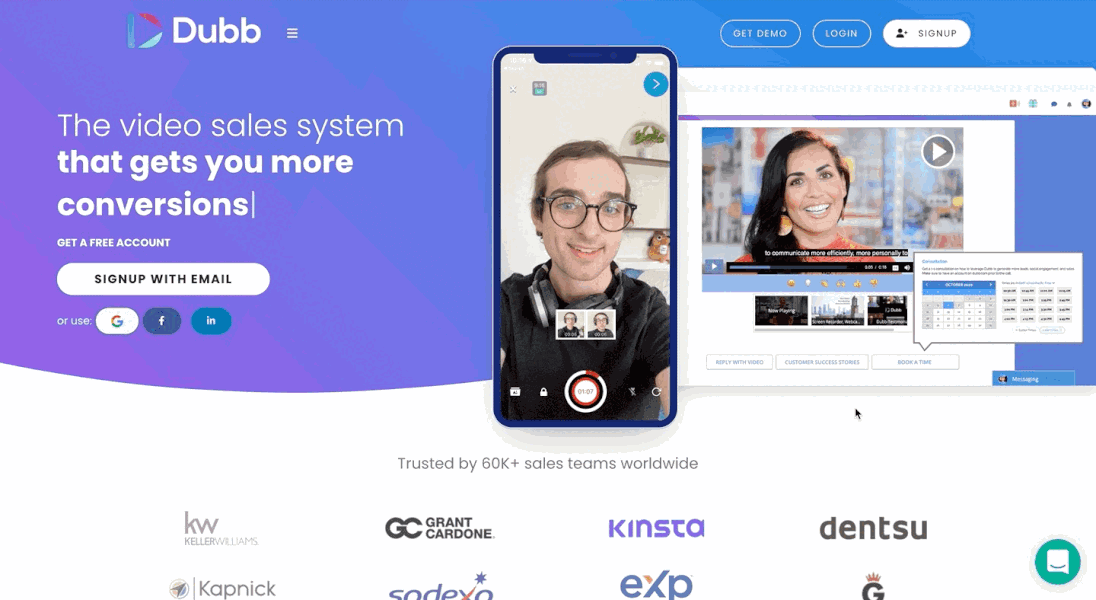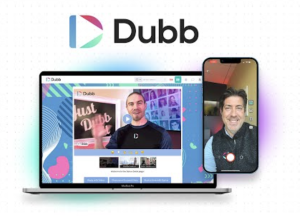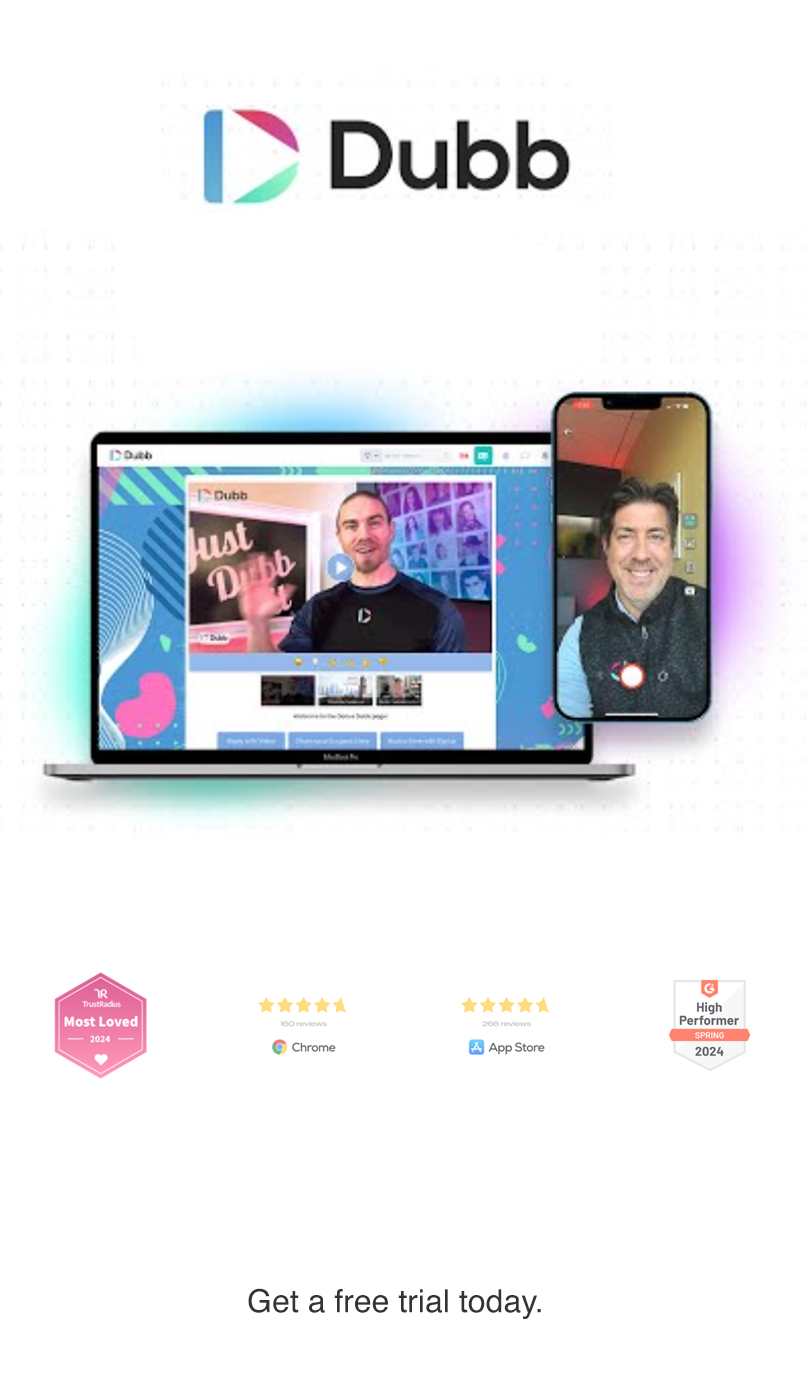In this recap of a recent episode of RevShow, Rob and I speak about the five types of salespeople in the market today. Whether you are a sales professional or are looking to better understand the sales professionals that you interact with in your daily life, you will get a substantial amount of value from this recap. If you would like to watch this video in full, feel free to click on the video above.
Have you heard about the five types of salespeople?
You probably have. Even if you don’t know their specific names, you have probably experienced their personalities in some form or another. These sales professionals may be able to convert prospects into paying customers, but they do so in a way that is damaging. That damage not only affects the long-term relationship with the customer, but it can damage the sales professional’s effectiveness going forward.
So what are those five types of salespeople? We’re going to explore each of them in more detail. That being said, those five types of salespeople are the aggressor, the manipulator, the gifter, the worrier, and the featurer. At the end of this post, you will also learn about the Dubber, which is not one of the five types of salespeople, yet is an attitude that can help you build long-term customer relationships and generate more sales.
Through these examples of the five types of salespeople, you are going to learn so much about certain techniques and practices that may perhaps be more antiquated in today’s sales environment. While these sales professionals may have achieved substantial success in the past, these tactics may lead to more damage down the road.
So if you want to evolve and become a more modern salesperson, read on. I’m sure that you will learn something new!

The Aggressor
Let’s start by talking about the aggressor. This is one of the five types of salespeople that is immediately apparent when you engage with them. In fact, we have all had some type of interaction with an aggressor in our lives.
As you likely know, the aggressor is absolutely pushy. They are constantly coming up to you and saying things like, “Hey, do you want this product? Do you want this service? It can really improve your life!”
Even if that product or service can improve your life, the constant ringing in your ears is a major turn-off. The aggressiveness can be relentless. That pushy and scripted attitude ensures that the aggressor isn’t listening to your wants, needs, and objectives. In other words, they are only goal-oriented for themselves. They aren’t actually looking out for you.
We have all encountered the aggressor, whether it is in-person, on the phone, or even over text messages or IM. The aggressor completely attacks and leaves you on your heels. If you are in the aggressor’s path, you may think, “Am I even going to get a word in here? Does this person even care about my goals (which is what they should be caring about)?” Simply put, it can be incredibly frustrating.
What I have noticed is that very aggressive salespeople have an extremely finite amount of time to close some sort of deal. You may notice that in some industries, if you walk into the showroom or onto a sales lot, that aggressive salesperson will immediately recognize something. They know that if they don’t close you right there, they probably won’t close you in the future. In fact, they will probably never see you again.
Now, there is a solution to this. The problem, however, is rooted in this idea of scarcity of time. The only way to offset the scarcity of time is to be aggressive. It is the idea of getting that person from prospect to close as soon as possible.
That just isn’t going to work. The one-call close, the one-visit close, the one-appointment close, or the one-lot close are all rooted in the aggressiveness of the outcome. Someone in that sales conversation may have an absolutely legitimate goal or objective with the product or service. But instead of that sales professional taking the time to resolve that issue, the aggressive salesperson tends to bull rush into the deal. They truly don’t care about the problems that you are trying to solve. That sort of approach would probably work one percent of the time.
Ultimately, the aggressor is someone that likely isn’t going away anytime soon. Because these sales professionals have seen some success with their approach, they probably aren’t convinced that they need to change. That is unfortunate because these tactics, over the long term, are not going to work. They are going to alienate customers and prospects and make the sales professional more frustrated. It is better to avoid this sales personality in the first place.
The Manipulator
Now, let’s talk about the manipulator. This is arguably the worst of the five types of salespeople. The manipulator’s behavior borders on the immoral realm of sales. You definitely want to stay away from this sales personality type.
As we know, with power comes responsibility. Salespeople have power because they are inspiring and motivating others to make investments to change their lives. If that sales professional is using manipulative tactics, the entire interaction is not going to go well. Further, the salesperson’s job isn’t going to go well and his or her mental health will start to decline. Relationships with prospects, clients, and contacts will also degrade.
So why does this happen? Why does the self-serving mentality of manipulators lead to these poor outcomes?
It is pretty obvious. These sales professionals don’t really care about the other person’s goals. They are churning through relationships once they realize that the individual prospect or customer isn’t going to help them reach their goals. Clearly, this is not where we want to be. We don’t want to be churning and burning through prospects in order to reach our own goals—whatever those goals may be.
There is an expression that can be used in a good way or a bad way. That expression? “The end justifies the means.” In the positive sense, this can represent all of the things in life where you have really worked hard and made personal sacrifices. In the negative sense, however, “the end justifies the means” can lead to the dark side. As you can guess, the manipulator uses this phrase to accomplish their goals. Most of these goals are financial goals (like hitting this month’s sales target). By adopting this negative attitude, the salesperson essentially plays a zero-sum game. They have to win and everyone else has to lose.
The manipulator will lean into any insecurities that you have. They will then leverage pressure to get closer to the outcome that suits their goals and needs. If they have any leverage, they are going to use it against you. It’s really sad because it reminds us of that old mob expression: keep your friends close and your enemies closer. In a way, these sales professionals keep their friends close, but their prospects closer. They are going to tell you everything you need to hear.
While they will come at you with smiles, recognize that those smiles are extremely deceiving. The smiles aren’t for your outcome; they are for the manipulator’s outcome. And if you have some of these qualities of the sales manipulator? I highly encourage you to drop them starting right now. Your prospects, customers, and colleagues will thank you.
The Gifter
By now, you may feel like you’re being inundated with negative traits of sales professionals. Don’t worry: we are going to talk about some of these traits later in the article (they are emblematic of “Dubbers”). For now, let’s move on and talk about the gifter. The gifter is another one of the five types of salespeople, and while they may not be as aggressive as other sales professionals, they are holding themselves back from their goals.
If you really think about it, what a gifter really wants is an obligation. For instance, if I send you a nice fruit basket (perhaps a nice Edible Arrangement basket), I’m expecting that we are going to have a meeting. It’s engaging in that idea of reciprocity which was made famous by Robert Cialdini’s book Influence. These sales professionals feel that spending the time to find and give that gift gives them the right to have that meeting. If they don’t get that meeting, they will end up feeling slighted, annoyed, or even angry.
As we likely know, this is the wrong attitude to take. These sales professionals should have more confidence in leading with value, not gifts. By leading with value, they are in a much stronger place in building a relationship and actually generating that sale. They won’t need to send that gift in order to get their target’s attention. They will already have it by spending time focusing on their goals, wants, needs, and objectives.
Now, are we saying that gifting in sales is bad? No, we’re not. At the same time, we all know that the reason why sales gifting exists is that it creates that subtle obligation. Because the prospect received that box of chocolate or football helmet from their favorite team, the sales professional thinks that the prospect then has an obligation to call the salesperson back (or at least reply to their email). They may even expect that the prospect will take a meeting with them.
At Dubb, we believe there is a good way and a bad way to do this. A good way to use gifting is to base it on a relationship with zero expectations. That is the key here. Once you have an expectation when you’re exchanging a gift, you are in a difficult place. At the end of the day, you want to build strong relationships—even if the recipient of the gift doesn’t choose to work with you. In fact, you should come from a place of true gratuity. You may want to provide a certain gift to a prospect because you genuinely believe that they will like the gift and you expect nothing in return. Ironically, by going in with low expectations, you are probably increasing your chances of actually getting that meeting or callback that you desire.
Think about it this way: if someone received your gift card or other gift and actually sat down with you and had a meeting, would you have full confidence that the prospect is truly engaged? Or would you sincerely believe that the prospect took the meeting just because they felt obligated to do so? It’s an important question and one that you should ask yourself if you think you have this gifter attitude in sales.
I want to wrap up this topic of gifting with a story. I recently saw a LinkedIn post where someone took a screenshot of an email that was sent to them by a salesperson. That email said something like, “Hey, I was interested in sending you an Amazon gift card if you would agree to have a call with me.”
The commenters to that LinkedIn post went wild. People were saying it was modern-day bribery and that it was a great example of a salesperson that doesn’t understand how to convey value. While throwing money at problems can sometimes make those problems go away, it is much more difficult in this situation. Instead, what you should be doing is leading with value. Focus on what the customer wants and whether your product or service can help. And if you really need to send them a gift? Make sure you are doing it with zero expectations of anything in return.
The Worrier
From the gifter, let’s now talk about the worrier. The worrier is one of the five types of salespeople that is constantly biting their nails and looking at their email inboxes every three seconds. They constantly think about whether they should be sending a follow-up email or contacting a friend or colleague of the prospect they are targeting. The anxiety is almost always there and it usually leads them to make some poor decisions. In the worst types of situations, the poor decisions can lead to lost sales or permanently harmed customer relationships.
It’s like in the movie Swingers. Mike, who is one of the main characters, meets this woman Nikki at the bar. He has a great conversation with Nikki and is clearly making a big impact. When he gets home, he thinks about giving her a call. He leaves a message and then another message. He does this for some time, but after some time, Nikki picks up the phone. She says, “Mike, don’t ever call me again.”
You don’t want that to happen. If we worry too much, several things happen. First, we probably haven’t led with enough value. It speaks to our deeper insecurity about whether we are actually going to improve our prospects’ or customers’ lives. Secondly, there has to be some cadence in terms of the respectable time for a response. We can’t expect our customers and prospects to respond right away. They undoubtedly have busy schedules and are managing plenty of commitments in their daily lives. Expecting them to be immediately responsive is simply unrealistic and can strain your relationship with them.
The worrier is also rooted in a scarcity mindset. Adopting this mindset isn’t great for your pipeline or your mental health. It limits your ability to find new prospects and generate more sales. It is a defensive approach to sales and one that will limit the amount of business that you can actually generate.
From there, you will notice that the worrier mindset isn’t great for your income. If you are worrying about whether a prospect opened your email, watched your video, whether they are going to ignore your voicemail, or something else, you will notice that these worries will start to take a toll. Not only will you miss your sales goals, but you may be engaging in other destructive behaviors to manage your stress. It isn’t a great combination.
Here, I want to offer a small, shameless plug for Dubb. With Dubb, you will find some pretty advanced features that can ease your worries and stress. One of the best features is our real-time reporting system. If you send someone an email, a LinkedIn message, or an SMS message, you can actually know whether that prospect opens your message. Further, you can see if they clicked on a specific part of your message or whether they watched some (or all) of your video.
So if you are a worrier, I encourage you to check out Dubb and its real-time reporting features. You won’t have to worry again since you can get a granular view of what your prospects and audience members are doing.
The Featurer
Now, let’s talk about the featurer. This is the last of the five types of salespeople that you will encounter. The featurer is sneakily ineffective. While it may seem like they are helping on the surface, they are actually shooting themselves in their own feet.
But let’s back up for one second. On one hand, you have features. On the other hand, you have benefits. They are in two different camps, even though it may seem like there is substantial overlap.
When we are looking at prospects, we can apply a similar analysis. On one hand, there are problems, but on the other hand, there are solutions. Critically, prospects will take money to get solutions to their problems. That is the magic of sales. From a product perspective, there are features and then there are benefits. Features are what the product can do and benefits are the outcomes of those features.
What we always recommend is to focus on this latter camp. We want to focus on solutions and benefits when we are speaking with our audiences, whether they are cold prospects or recurring customers.
When you adopt this framework and start to communicate, your audience on the other side will open up. They intuitively understand, “This is the person that is going to help me remove friction so I can find solutions to my problems. In turn, this is going to provide lots of value to my life.” On the flip side, the featurer is constantly focused on the minutiae and the features. They put aside the benefits and are obsessed with how the features specifically work. What happens is that the featurer ends up seeing the trees, but not the forest. It’s unfortunate because people buy because of the forest. They are looking at the overall meaning and the larger picture. When you are focused on the tiny feature details, this focus can substantially slow the momentum toward a sale.
Another way to avoid being a featurer is to spend more time on research and discovery (what we call R&D). By spending time on research, you can better understand what the person is trying to accomplish. You can better get what their company is trying to get done. From there, you can discover what their specific goals are, making it much easier to focus on solutions that offer benefits. Essentially, this means that you can better lead with value. Features without benefits are just more problems, so you need to avoid getting caught in the weeds with features. Someone may be motivated to buy on the big picture that you are presenting, but a specific feature may unexpectedly throw them off. In the end, recognize that features will lead into the big picture. They have built up what you have to present to the prospect or customers. As a sales professional, your job is to give them the benefit of that outcome.
One of the ways that Dubb has grown into what it is today is that we have always made a commitment and promise to others. If you decide to work with us, you are joining us on a journey. We are in this together. Ultimately, we are here to help you accomplish your goals. The amazing thing about this connector attitude is that the features that you offer are much less important than you think. What really matters is that we are on this quest together to accomplish a common goal (which is sales growth).
So remember: people want benefits, not features. If you just remember this simple mantra, you will be well on your way to accomplishing your sales goals.
The Sixth Sales Personality: The Dubber
At this point, we have talked about the five types of salespeople and some of the unproductive personalities that they may have. Now, I want to talk about the sixth sales personality. We call it the Dubber. You can also call it the Dubby or Dubsters. Really, it is about how Dubb provides immense value for all types of sales professionals and marketers.

When we think of this modern salesperson (essentially, the sales professional that embodies the best aspects to build relationships and drive more revenue), it all comes down to three Vs. Those three Vs are value, virtue, and video.
So let’s talk about value. I have mentioned this multiple times in this post, but the point is so critical. It is absolutely vital to lead with value in any type of prospect or customer interaction. Any good sales professional or sales team will embody this phrase.
From there, you need to ask yourself: is that value backed up by virtue? In other words, are you on the right path and using your sales powers for good? A big part of this is coming from an authentic place. Authenticity helps you better present that value and virtue.
Finally, the best way to combine that value and virtue is through video. For a number of reasons, video is the best vehicle to do this. All of the things that we have been discussing in this post come down to providing value, creating relationships, presenting solutions, and giving your buyer benefits. Video does that because it is visual and it connects people like no other medium.

Video not only brings out the authentic you that we always discuss. It is one of the most connective pieces of two-way communication that exists today. When sending asynchronous video content through Dubb, your audience watches that video on their own schedule. When watching your video, they can immediately build a connection with the sales professional who is on the other side of the screen. They are able to make their own decisions, respond back in the way they want (through Dubb’s many call to action options), and start building a long-term relationship with you.
At Dubb, we have found that there is a massive boost in not only connections and conversations, but conversions. I encourage you to adopt the three Vs, whether you are just starting your sales career or are trying to move away from one of these five types of salespeople.
Going Forth and Moving Beyond the Five Types of Salespeople
Ultimately, there are plenty of things that we can take away from the five types of salespeople. I didn’t mean to ridicule certain sales types or certain personality types. Instead, what I wanted to do here is collectively grow and help us move away from some of the more antiquated or old-school sales personalities. What we can do is focus on the newer ways of building strong relationships with our prospects and generating more sales.
So if you see yourself as one of these five types of salespeople, there is no need to panic. You aren’t automatically destined for a failed sales career. Rather, what you can do is understand all of these five types of salespeople, recognize where these attributes fall short, and then work to embrace the three Vs and the Dubber attitude. While it may take some time to adjust, the hard work will absolutely pay off.
If you would like to learn more about how Dubb can help you accomplish your sales and marketing goals, click here. You can also click here to contact us and click here for a free 14-day trial of our premium plans. We look forward to hearing from you!


